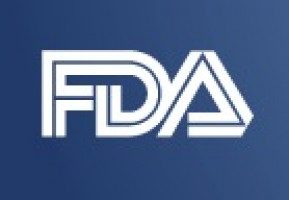
On March 28, 2025, the Food and Drug Administration approved durvalumab with gemcitabine and cisplatin as neoadjuvant treatment, followed by single agent durvalumab as adjuvant treatment following radical cystectomy, for adults with muscle invasive bladder cancer (MIBC).
Full prescribing information for durvalumab will be posted on Drugs@FDA.
Efficacy and Safety
Efficacy was evaluated in NIAGARA (NCT03732677), a randomized, open-label, multicenter, Phase III trial enrolling 1,063 patients who were candidates for radical cystectomy and had not received prior systemic therapy for bladder cancer. Patients were randomized (1:1) to receive neoadjuvant durvalumab with chemotherapy followed by adjuvant durvalumab after surgery or neoadjuvant chemotherapy followed by surgery alone.
The major efficacy outcome was event-free survival (EFS) by blinded independent central review. Overall survival (OS) was an additional efficacy outcome. At a pre-specified interim analysis, the trial demonstrated a statistically significant improvement in EFS and OS. Median EFS was not reached (NR) (95% CI: NR, NR) in the durvalumab with chemotherapy arm and 46.1 months (95% CI: 32.2, NR) in the chemotherapy arm (hazard ratio 0.68 [95% CI: 0.56, 0.82]; two-sided p-value <0.0001). Median OS was not reached in either arm (hazard ratio 0.75 [95% CI: 0.59, 0.93]; two-sided p-value=0.0106).
Adverse reactions were consistent with prior experience with durvalumab with platinum-based chemotherapy.
The recommended durvalumab dose for patients with a body weight of ≥30 kg is 1,500 mg every 3 weeks with chemotherapy (neoadjuvant treatment) and 1,500 mg as a single agent every 4 weeks (adjuvant treatment). The recommended durvalumab dose for patients with a body weight <30 kg is 20 mg/kg with chemotherapy every 3 weeks (neoadjuvant treatment) and 20 mg/kg as a single agent every 4 weeks (adjuvant treatment). Treatment should continue until disease progression that precludes definitive surgery, recurrence, or unacceptable toxicity or a maximum of 8 cycles after surgery.
Source: FDA
We are an independent charity and are not backed by a large company or society. We raise every penny ourselves to improve the standards of cancer care through education. You can help us continue our work to address inequalities in cancer care by making a donation.
Any donation, however small, contributes directly towards the costs of creating and sharing free oncology education.
Together we can get better outcomes for patients by tackling global inequalities in access to the results of cancer research.
Thank you for your support.